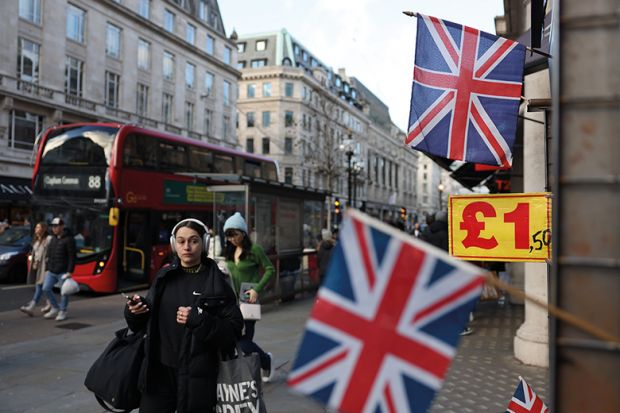Only a handful of universities have confirmed plans to charge the revised full English tuition fee to both new and returning undergraduates amid uncertainties over student contracts and accusations of unfairness.
Times Higher Education asked every major English university for its stance on applying the £285 uplift – announced by education secretary Bridget Phillipson earlier this month – and the impact that it would have on finances.
Ministers have made clear that the new maximum fee can be applied to continuing students, if this is allowed for in an institution’s terms and conditions, with an average university set to lose out on about £3 million if they decide to apply it only to those starting courses in 2025-26.
Leeds Trinity, Teesside and Northumbria universities were among those going ahead with implementing the rise for all students, alongside the universities of Brighton, Manchester, Portsmouth, Winchester and Worcester.
But Leeds Beckett University said it had “notified our current home students that their fees will remain at £9,250 for the duration of their undergraduate studies” and the uplift will be applied to new entrants only. The University of Reading and Bournemouth University were also understood to not be increasing fees for existing students.
Most universities said the matter was still open for discussion or failed to respond to multiple requests for comment.
Many institutions are nervous that clauses in student contracts around potential rises in fees would not stand up to legal challenge or meet guidance issued by the Competition and Markets Authority.
While most current students accepted places under the previous government – which categorically ruled out fee rises – universities routinely review their terms and conditions and securing an uplift has been the main aim of sector leaders for at least the past two years.
David Green, Worcester’s vice-chancellor, said he was confident his institution’s terms and conditions had made it very clear that fees for continuing undergraduate students could increase by inflation or up to the maximum allowed by government policy, whichever was greater.
He was “surprised” to learn that other institutions could not say the same, especially because increasing fees by inflation for continuing international students was widespread practice across the sector.
Legal experts have stressed the difficulties in second-guessing future government policy when drafting contracts and have called for more national guidance if fee rises become more commonplace.
But the Office for Students – which has estimated that the fee rise would bring the sector an additional £371 million in income, but only if it is applied to all students – has made it clear that it will leave the issue up to individual institutions to interpret.
Student groups have also mounted a pushback against raising current students’ fees. Alex Stanley, vice-president (higher education) of the National Union of Students, said it was “unfair” because students’ “entered university with the expectation of having a certain level of debt” and showed how “universities’ financial desperation is palpable”.
Tom Allingham, a student money expert at the website Save the Student, said it was “frustrating that, despite a fee increase being on the cards for several months now, many universities are yet to confirm if current students will be affected”, and he urged institutions to provide clarity as soon as possible.




